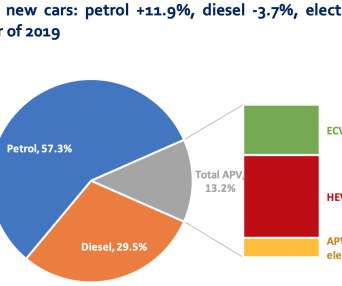BMW sticks to 50% EV target by 2030—not including hybrids, PHEVs
Baua Electric
MAY 16, 2024
” Zipse also emphasized that hybrids and plug-in hybrids remain a major part of BMW’s plans, noting that the automaker expects the plug-in hybrid version of its midsize 5-Series to account for about 20% of sales for that model in Europe. . “We will stay flexible—even well into the 2030s.”











Let's personalize your content